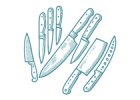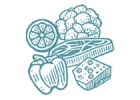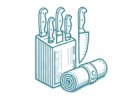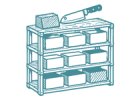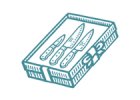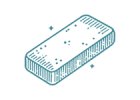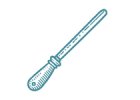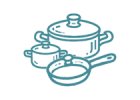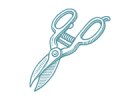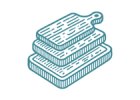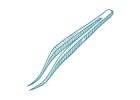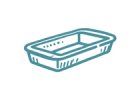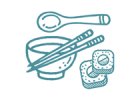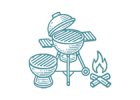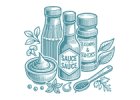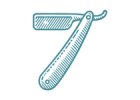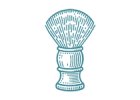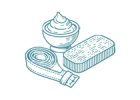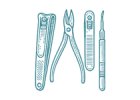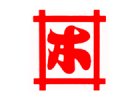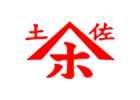German Steel 1.4116
German steel 1.4116 is a high quality stainless steel that is often used in the production of knives, especially kitchen knives. This type of steel is popular due to its balanced properties, which are important for sharpness, corrosion resistance and overall durability of the knife.
Composition and properties of steel 1.4116:
Carbon: 0.45-0.55% - This level of carbon provides sufficient hardness for knives without making the steel too brittle.
Chromium (Cr): 14-15% - Provides high corrosion resistance, one of the key properties of stainless steels.
Molybdenum (Mo): 0.5-0.8% - Helps increase corrosion resistance and improves steel strength.
Vanadium (V): small amounts contribute to improved hardness and wear resistance.
Key features:
Corrosion Resistance: the high chromium content makes 1.4116 highly resistant to corrosion and oxidation, making it an excellent choice for kitchen environments where there is frequent contact with moisture and food.
Hardness: 1.4116 steel can achieve a hardness between 55-57 HRC (Rockwell Hardness Scale), giving it a good ability to hold a blade without being too hard to break.
Easy grinding: Unlike some harder steels, 1.4116 is relatively easy to sharpen, which is especially appreciated by those who regularly sharpen their knives.
Sharpness: thanks to the fine microstructure of the steel, the blade can be very sharp, which is a desirable feature especially for kitchen knives. Knives made of 1.4116 steel are often chosen by chefs and home cooks for their combination of sharpness, durability and corrosion resistance.
The main advantages of these knives include:
Good blade retention: knives made of this steel retain their sharpness for longer, which means they do not need to be sharpened often.
Corrosion resistance: these knives are ideal for kitchens where moisture and acidic foods such as citrus or tomatoes are regularly exposed.
Easy sharpening: even though the knives made of this steel are hard, they can still be easily sharpened at home without the need for professional equipment.
Balance of hardness and toughness: they are hard enough to hold a blade, but tough enough to resist chipping or breaking under heavy use. Steel 1.4116 is most commonly used in kitchen knives, but is also used in other areas such as the production of outdoor and hunting knives, scissors or surgical instruments.
Comparison with other steels:
1.4116 steel is similar to X50CrMoV15 steel, which is also widely used in kitchen knives. While harder steels like VG10 or S30V may have better blade retention, 1.4116 offers better corrosion resistance and easier maintenance, making it a great choice for everyday use in the kitchen.
ČSN: 17 136; POLDI: Ak5Mo; TŘINEC: X50CrMoV1; W.No.: 1.4116; DIN: X50CrMoV1
Grinding 1.4116 steel, like any other stainless steel, requires the correct procedure and the appropriate tools. Although this steel is relatively easy to sharpen, it is important to ensure that the process is done correctly to achieve the best possible sharpness and to extend the life of the knife. Here are some steps and recommendations on how to properly sharpen 1.4116 steel knives:
Choose the right grinding tools
Grinding stone (whetstone): It is the best choice for sharpening knives made of 1.4116 steel. Use a stone with a grit of around 1000 grit for basic grinding and around 3000-6000 grit for finer finishing and final sharpening.
Grinding rod (sharpener): To maintain sharpness between grinds, you can use a sharpening bar to straighten the blade without removing material.
Stretch grinder: a great helper for quick and easy maintenance of common kitchen knives. Although not as precise as grinding on a grindstone, its advantages are speed, simplicity and convenience. For most home users, this is an excellent option for keeping knives sharp without the need for more complicated sharpening.
Preparation for grinding
Soaking the grinding stone: If you are using a water-based grinding stone, soak it in water for about 10-15 minutes before grinding to allow the stone to become sufficiently saturated with water. This ensures smooth movement of the blade over the stone and prevents clogging.
Stable surface: make sure the stone is firmly placed on a stable surface. The stones are often supplied with rubber pads to ensure that they do not move.
Knife sharpening
Grinding angle: For knives made of 1.4116 steel, a grinding angle between 15° and 20° is recommended. A lower angle (closer to 15°) will provide a sharper edge, but a higher angle (closer to 20°) will provide longer blade life and greater resistance to damage.
Technique:
Place the blade on the stone at the correct angle (15-20°) and start pulling the blade towards you, as if you were cutting away a thin layer of stone. With this movement, pull the blade from the heel (closer to the handle) to the tip of the knife. Repeat this motion on one side of the blade 10-15 times, then turn the knife and repeat on the other side. It is important to maintain a consistent angle throughout the grinding process.
Gradual fine grinding
After coarse grinding (1000 grit), move to a finer grinding stone (3000-6000 grit). This step smooths the edges and removes minor imperfections, resulting in a sharper, smoother blade.
Finishing grinding (edge polishing)
For maximum sharpness, you can use a grinding stone with a grit of 8000 or more, or a grinding wheel (strop). This step ensures a perfectly sharp blade and removes even microscopic steel residues.
Using a sharpening steel
There is no need to re-sharpen the knife after daily use. Simply pass the whetstone several times at the same angle (15°-20°) to restore the edge sharpness without removing material.
Sharpness testing - youcan test the sharpness ofyour knife in several ways:
Paper test: try to easily cut a sheet of paper. If the knife cuts smoothly through the paper, it has a properly sharpened blade.
Test on the nail: gently rest the blade on the nail (not at an angle), and if it catches slightly and does not slip, the knife is sharp.
Tips and recommendations:
Do not increase the pressure: Do not apply too much pressure while sanding. Too much pressure can cause rapid removal of material and damage to the blade.
Regularity: it is better to lightly sharpen the knife regularly than to wait until it is completely dull. Regular maintenance will significantly extend the life of the knife.
Cleanliness: always clean the blade and stone thoroughly after grinding to remove small metal particles and dust.
With the right grinding and maintenance procedure, a 1.4116 steel knife can last a very long time and provide excellent performance in everyday use.






